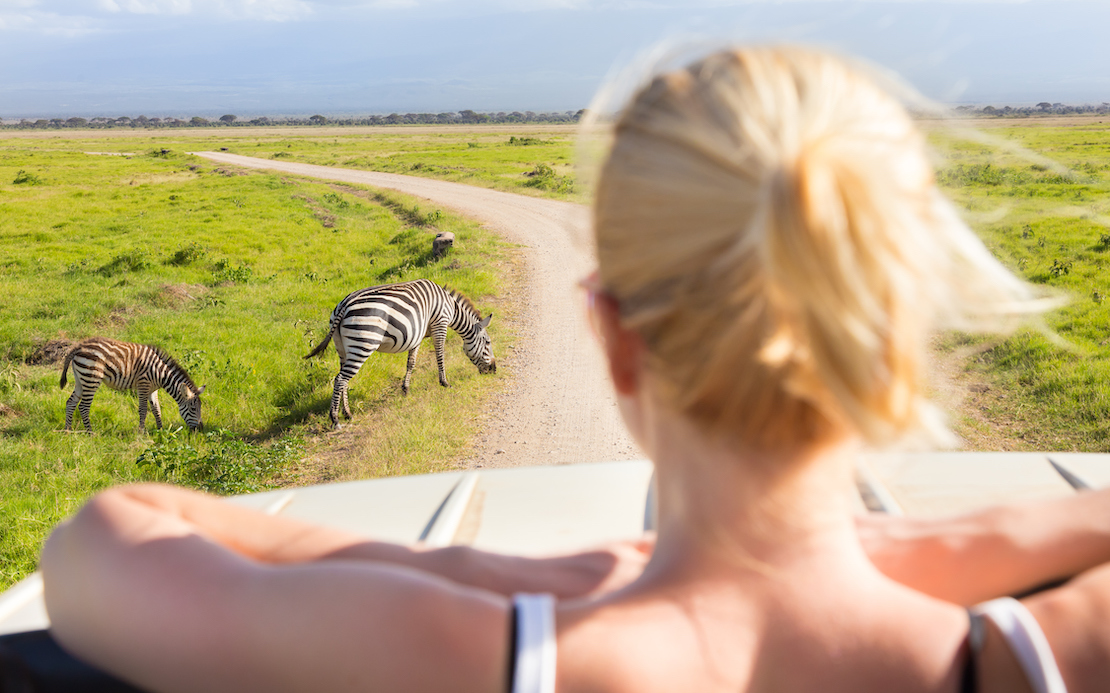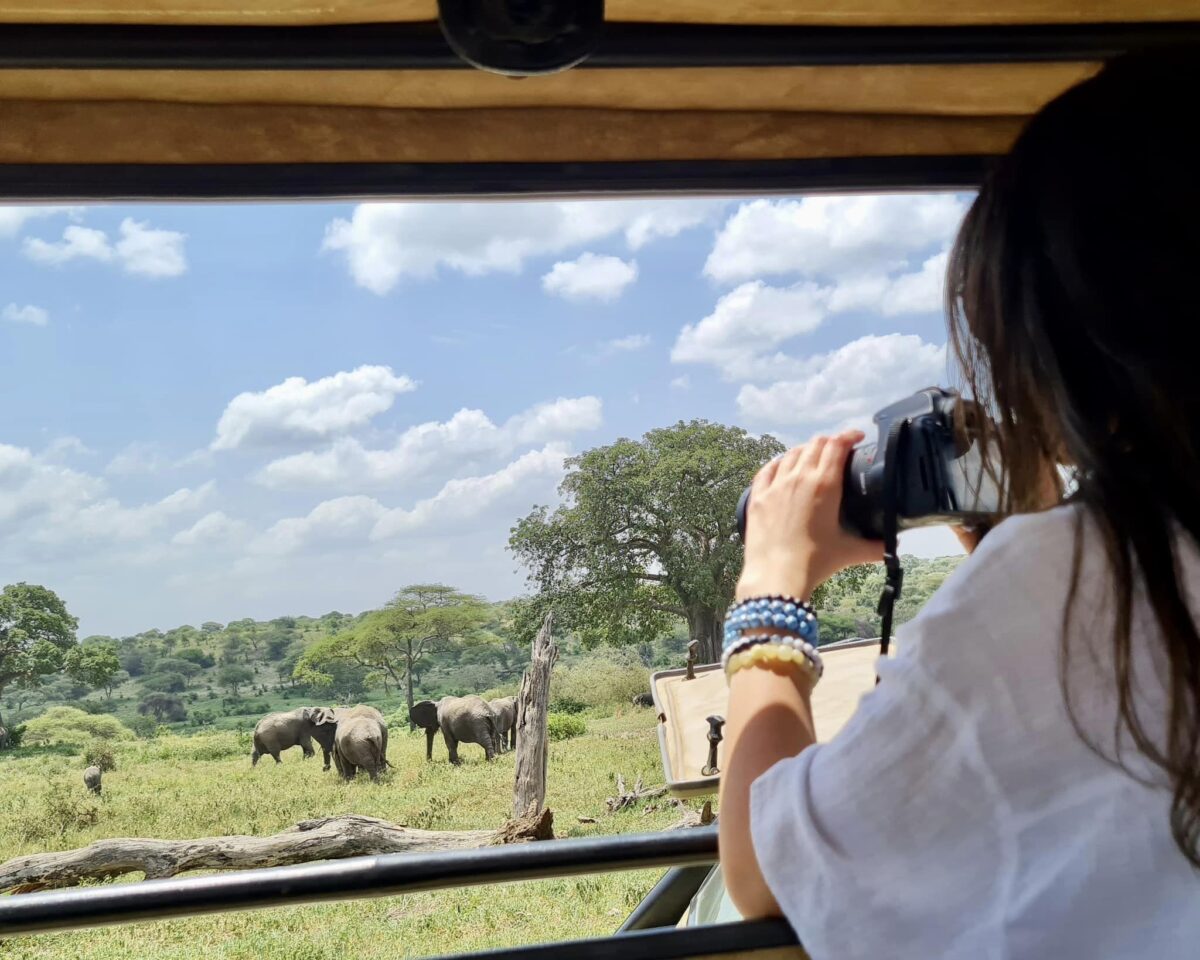Volunteering in Africa offers a unique chance to immerse yourself in the wild while contributing to conservation efforts. If you’re passionate about wildlife and eager to make a difference, African safari volunteer programs provide a once-in-a-lifetime experience. From South Africa to Kenya, these programs allow you to work closely with animals, support conservation projects, and explore the stunning landscapes of Africa. Let’s dive into the best safari volunteer programs across the African continent.
What Do African Safari Volunteer Programs Entail?
African safari volunteer programs are opportunities for people to engage in conservation efforts and community development projects while experiencing the continent’s incredible wildlife and landscapes.

These programs often involve working with animals, conducting research, and participating in community outreach. By joining such programs, volunteers contribute to preserving Africa’s rich biodiversity and supporting local communities.
Benefits of Joining Safari Volunteer Work
Volunteering on a safari is not just about the adventure; it also offers numerous benefits:
- Hands-On Experience: Gain practical skills in wildlife conservation.
- Cultural Immersion: Learn about local cultures and traditions.
- Personal Growth: Develop new skills and build confidence.
- Make a Difference: Contribute to meaningful conservation projects.
- Networking: Meet like-minded individuals from around the world.
Ethical Safari Volunteer Programs
Choosing an ethical safari volunteer program is crucial to ensure that your efforts positively impact wildlife and local communities.
Here are some steps to help you identify and select a responsible and ethical program:
Research the Organization
- Check the Organization’s Background: Look for established organizations with a good reputation. Research their history, mission, and values to ensure they align with ethical conservation practices.
- Read Reviews and Testimonials: Look for feedback from past volunteers. Reviews and testimonials can provide insights into the organization’s operations and the impact of their programs.
- Verify Accreditations and Partnerships: Check if the organization is accredited by recognized conservation bodies or partnered with reputable wildlife conservation groups. Accreditation and partnerships can be indicators of legitimacy and ethical practices.
Evaluate the Program’s Impact
- Assess the Conservation Goals: Ensure the program has clear, measurable conservation goals. Ethical programs should have a significant, positive impact on wildlife and the environment.
- Understand the Volunteer Activities: Ethical programs will involve volunteers in activities that genuinely benefit wildlife and conservation efforts. Avoid programs that exploit animals for entertainment or profit.
- Check for Long-Term Sustainability: Sustainable programs focus on long-term conservation goals rather than short-term gains. Ensure the program supports ongoing efforts to preserve wildlife and habitats.
Animal Welfare Standards
- Humane Treatment of Animals: Verify that the program adheres to strict animal welfare standards. Animals should be treated humanely and not subjected to unnecessary stress or harm.
- Direct Interaction Policies: Ethical programs often discourage direct interaction with wild animals to prevent them from becoming habituated to humans, which can be detrimental to their survival in the wild. If the program does include some human interaction, be sure to research thoroughly as to why – some exceptions are usually made for disabled animals or animals that are particularly weak. If human interaction is required, it must be supervised by a local professional.
- Responsible Wildlife Rehabilitation: If the program involves rehabilitation, ensure it follows best practices for releasing animals back into their natural habitats.
Community Involvement and Benefits
- Support for Local Communities: Ethical programs work closely with local communities, providing benefits such as education, employment, and economic support. Ensure the program supports and respects local cultures and traditions.
- Transparency in Operations: Ethical programs are transparent about how they use volunteer fees and how these funds contribute to conservation and community projects.
Legal and Ethical Compliance
- Compliance with Local and International Laws: Ensure the program complies with all local and international wildlife conservation laws. Illegal activities, such as poaching or trafficking, should not be associated with the program.
- Ethical Volunteer Recruitment: Ethical programs recruit volunteers responsibly, providing clear information about the roles, expectations, and impact of volunteer work. They also should not be assigning specialized roles to unqualified people. For example, if you have no veterinary background or experience, you should not be directly involved in any medical procedures involving animals.
By thoroughly researching and evaluating safari volunteer programs, you can make informed decisions that support ethical wildlife conservation and positively impact the communities and ecosystems you aim to help. This way, your volunteer experience will be both rewarding and responsible, contributing to genuine and lasting conservation efforts.
Top African Safari Volunteer Programs
Here we have a list of vetted and reputable providers offering great safari volunteering programs across Africa:
Most Popular Guidebooks
International Volunteer HQ (IVHQ)
International Volunteer HQ’s (IVHQ) volunteer programs offer unique opportunities to contribute to wildlife conservation while exploring some of Africa’s most iconic landscapes. IVHQ’s programs provide hands-on involvement in meaningful conservation work.
Let’s delve into three standout programs:
- Wildlife Conservation Volunteer Program in Victoria Falls: Volunteers help maintain a private game reserve, contributing to conservation and research projects, amidst wildlife like lions, elephants, and endangered black rhinos. Tasks include vegetation removal, soil erosion control, waterhole creation, wildlife monitoring, road maintenance, and participation in conservation lectures. Volunteers stay in private rooms at a conservation center, with meals prepared by an on-site cook, featuring a mix of Western and traditional Zimbabwean dishes.
- Wildlife Volunteer Program in Namibia: Volunteers assist in rehabilitating and caring for animals in a wildlife sanctuary, aiming to release them back into the wild when possible. Tasks include feeding animals, intensive care for juvenile wildlife, observing cheetah runs, construction jobs, animal tracking, and research project assistance. Volunteers live in semi-permanent tents at the sanctuary, with meals provided by the local team, including self-serve breakfasts and prepared lunches and dinners.
- Wildlife Conservation Volunteering in South Africa: Volunteers work in Greater Kruger National Park, aiding conservation efforts to ensure the park’s sustainability and success. Tasks include bushcraft training, game drives, biodiversity surveys, vegetation sampling, camera trapping, monitoring rare species, and disaster management. Volunteers stay in dormitory-style houses at Rusermi Camp within Balule Game Reserve, preparing their own meals with provided supplies.
GoEco
GoEco’s Safari Volunteering opportunities allow you to immerse yourself in Africa’s wild landscapes while contributing to crucial conservation efforts. Experience the thrill of working alongside wildlife in their natural habitats, all while making a meaningful impact on their preservation.
Let’s explore four of GoEco’s safari programs:
- Botswana – Safari Volunteer Program: Volunteer in Botswana’s Central Tuli Block, contributing to conservation efforts amidst elephants and leopards. Tasks include wildlife monitoring, data collection, and habitat restoration.
- South Africa – Wild Cat Sanctuary & Kruger Safari: Work with rescued African wild cats at a sanctuary in South Africa, then enjoy a 3-day safari in Kruger National Park. Tasks include feeding animals, cleaning enclosures, and participating in enrichment activities.
- Kenya – Maasai Mara Lion and Wildlife Conservation: Immerse in Maasai culture and conservation in Kenya’s Pardamat Conservation Area, monitoring lions, leopards, and cheetahs, and engaging in wildlife counts and ecosystem preservation.
- South Africa – Big 5 and Endangered Species Reserve: Experience life in the African bush in Hoedspruit, South Africa, working with the Big 5 species. Tasks include monitoring, observation, tracking, habitat management, and data collection.
Projects Abroad
Projects Abroad offers programs that combine meaningful work with unforgettable experiences. Volunteers live in shared accommodations with other volunteers, providing an opportunity to bond and share experiences. All programs include three meals a day.
Discover three exceptional programs that provide opportunities to significantly impact the conservation of Africa’s iconic wildlife.
- Giraffe & Lion Conservation in Kenya: Support wildlife conservation in Kenya’s Soysambu Conservancy, focusing on the endangered Rothschild Giraffe and lions. Tasks include research, camera trap setup, community outreach, invasive plant removal, and maintaining waterholes.
- Africa’s Big 5 and Wilderness Conservation in Botswana: Join conservation efforts in Botswana’s Tuli Block, working with elephants and other wildlife. Activities include elephant research, anti-poaching patrols, water conservation, and wildlife surveys.
- Volunteering with Animals in Botswana for Over 50s: Protect wildlife in Botswana’s Tuli Block, focusing on species like elephants, lions, and giraffes. Participate in waterhole maintenance, wildlife tracking, anti-poaching patrols, and setting up camera traps.
African Impact
African Impact is a leading volunteer organization dedicated to providing impactful volunteer experiences across Africa. Established in 2004, the organization partners with local communities to ensure that projects are community-led and address genuine needs in the region.
Learn about these exceptional projects that enable you to contribute significantly to the conservation of Africa’s wildlife.
- Endangered Black Rhino & Elephant Conservation: Join the conservation efforts at Imire Conservancy in Zimbabwe to help protect endangered black rhinos and elephants. Participate in hands-on care, research, anti-poaching activities, and community outreach. Volunteers stay in cottage-style accommodations with three home-cooked meals provided daily.
- Wildlife Veterinary Program in South Africa: Gain hands-on experience in wildlife veterinary procedures in South Africa. Ideal for veterinary students and professionals, this program includes wildlife captures, treatment processes, and conservation initiatives.
- Horse Riding, Elephant & Rhino Conservation: Experience conservation on horseback in Zimbabwe’s Imire Conservancy. Monitor and care for rhinos and elephants, engage in anti-poaching activities, and teach local children about conservation. Volunteers stay in shared accommodations with three home-cooked meals provided daily.
- Big Cat & Elephant Research & Conservation in Kenya: Contribute to wildlife research in Kenya’s Pardamat Conservation Area and Naboisho Conservancy. Engage in fieldwork, monitoring, and data collection on lions, leopards, cheetahs, and elephants. Volunteers stay in safari-style tents with three meals provided daily.
- African Big 5 Volunteering Project in South Africa: Immerse yourself in South Africa’s Greater Kruger Area, contributing to the conservation of lions, elephants, rhinos, leopards, and buffalo. Participate in animal tracking, monitoring, and habitat restoration. Volunteers stay at Kambaku Camp with dorm rooms and are provided three meals daily.
Volunteering Solutions (VolSol)
Volunteering Solutions offers a unique Wildlife Volunteer Program in South Africa, allowing participants to engage in conservation efforts on a 6000-hectare reserve near Port Elizabeth. Volunteers participate in activities like lion tracking, tree planting, and anti-poaching efforts, contributing to the preservation of diverse wildlife, including the Big Five.
Living on-site in dorm-style accommodations, volunteers enjoy a communal environment with provided meals. Weekends offer the chance to explore local attractions, making this program a perfect blend of meaningful work and adventure. This experience promises to inspire and leave a lasting impact on both the volunteers and the wildlife they help protect.
Global Vision International (GVI)
Embark on an extraordinary journey with Global Vision International (GVI) through their diverse safari volunteering programs in South Africa. These unique opportunities are perfect for individuals passionate about wildlife conservation and eager to make a difference.
Engage directly with the natural world, contribute to vital research projects, and support community development initiatives.
- Elephant, Rhino, and Buffalo Research and Conservation: Witness African elephants, rhinos, and buffalo in the wild while contributing to crucial wildlife conservation efforts. Located in a private wildlife reserve in Limpopo, near Kruger National Park, participants track these majestic animals and assist with ongoing research projects. Volunteers gain hands-on experience in data collection, community engagement, and conservation initiatives, fostering a deeper understanding of South African ecosystems and the challenges faced by wildlife.
- Wildlife Research Expedition: Join an international team on a wildlife research expedition in the South African bushveld. Participants conduct critical conservation research, tracking and identifying predators like lions and cheetahs, as well as megaherbivores such as elephants and rhinos. The program involves fieldwork, community engagement, and environmental education, offering a comprehensive conservation experience while living and working in a private game reserve.
- Big Cat Conservation Research: Participate in big cat conservation efforts and valuable wildlife research in South Africa. Volunteers work alongside an international research team, focusing on the spatial utilization, inter-species interactions, and prey preferences of big cats, including lions, cheetahs, and leopards. This program offers an opportunity to contribute to the preservation of these magnificent animals while gaining practical research skills and knowledge about their behavior and ecology.
- Rhino Poaching Awareness: Support anti-poaching efforts and wildlife research in South Africa. This program focuses on raising awareness about rhino poaching, contributing to environmental education, and assisting with fundraising efforts. Volunteers engage in data collection, community outreach, and conservation projects, helping to protect critically endangered rhinos and other vulnerable species in a private game reserve.
- Cheetah Conservation and Research Project: Contribute to the preservation of cheetahs in the South African savannah. Volunteers assist in tracking and monitoring cheetah behavior, collecting data on their interactions with other predators, and supporting ongoing conservation initiatives. The program includes community development projects, fostering connections between local communities and wildlife conservation efforts.
- Bushwise 60-day Safari Guide Course: Become a qualified safari guide through a 60-day immersive course in the South African bush. Participants gain comprehensive knowledge and practical experience in wildlife conservation, species identification, and guiding. The course covers essential skills, including leadership, project management, and critical thinking, preparing participants for careers in conservation, ecotourism, and guiding.
Into the Wild
African safari volunteer programs offer a once-in-a-lifetime opportunity to combine your passion for wildlife with the desire to make a positive impact. These programs not only enrich your life with unforgettable experiences but also contribute significantly to the conservation of some of the world’s most endangered species.
Whether you’re interested in working with big cats in South Africa, caring for elephants in Kenya, or joining a horse safari volunteer program in Zimbabwe, there are numerous opportunities to make a positive impact. By participating in these programs, you’ll not only gain unforgettable memories but also help preserve Africa’s incredible natural heritage.
As you prepare to take on this adventure, know that your dedication and hard work are invaluable in the ongoing efforts to protect and preserve Africa’s incredible natural heritage.


Munira Maricar · Travel Writer
With an international living background spanning Singapore, Qatar, Japan, and Mexico, Munira enjoys sharing insights on immersive travel while emphasizing the vital role of cultural respect and ethical engagement. Her extensive experience offers a unique perspective that inspires others to explore the world through service, ensuring that every journey respects and contributes positively to local traditions and communities.